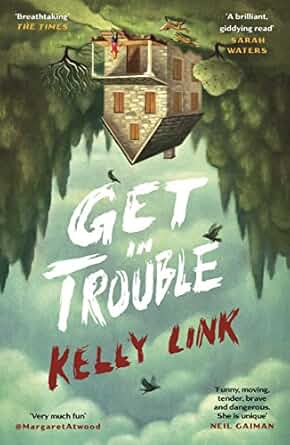Before you upload your file for a competition (and pay the entry fee!) or attach it to an email to an agent/publisher, here are five final checks to do.
These apply whether you're writing fiction or
non-fiction.
#1: Double-Check the Word Limit
If you're entering a bunch of competitions, it's easy to get confused about how long your pieces are supposed to be. I once wrote a 1,500 word story for a competition with a 1,000 word limit ... that made for quite a lot
of cutting. 😅
Some competitions/editors may allow a bit of leeway, but others will be really strict about the word limit, so make sure you haven't gone over it.
#2: Make Sure You've Included the Extras You're Asked For ...
Competitions will usually want you to have a cover page at the start of your story or article.
You'll be asked to include specific details on this, like your name, contact details, the title of your piece, and the wordcount.
Make sure you've included everything you've asked for. It sounds obvious, but you don't want to end up disqualified because you forgot the cover page or you missed off the wordcount.
If you're submitting to an agent, check what they want: typically, it's a cover letter, synopsis, and the first 3 chapters. Make sure you provide all of these.
#3: ... And DON'T Include Anything You're Not Supposed To
When you're submitting to an editor, agent, or publisher, you should have your name on your piece.
When you're
entering a competition, however, you're normally told not to put your name on. This ensures that entries are judged fairly. In most cases, your name should only appear on the cover page (this will be separated from your manuscript before it's read by a judge).
If the story itself has your name on, you might end up disqualified.
#4: Number Your Pages
I realise that most editors, agents, publishers, and judges likely read submissions online, but just in case you've sent your piece to someone old-school who prefers to read on paper, number your pages.
If you're not sure how to do this, Google "how to add page numbers in" plus the name of your wordprocessing software (e.g. Word, Google Docs, Pages).
#5: Format Your Manuscript Correctly
Way back when I
started writing seriously in my teens, the conventional advice was always to format in Times New Roman, 12pt, double-line-spaced.
These days, any clear, plain font should be fine (e.g. Arial) but you'll still normally need double line spacing. Check whether the competition, agent, etc has any specific requirements about formatting.
This also goes for file formats: you might be asked to submit a .pdf or a Word document, for instance.
If you haven't been given any other guidelines, you can follow the advice here: literaryconsultancy.co.uk/tlc-services-faqs/manuscript-formatting/
Competitions, agents, editors, publishers, magazines, and so on get a lot of submissions. If yours comes in a weird format or is written in a difficult-to-read font, they won't necessarily have the time or
inclination to sort it out. They'll just move on to the next submission.
Run through those final checks with each piece you send out, and your writing itself will be able to shine through.


